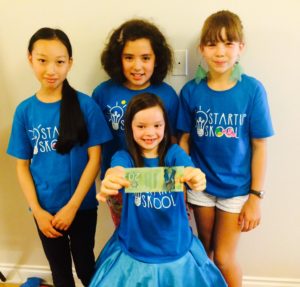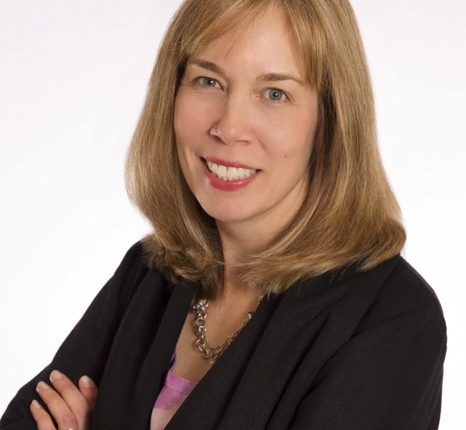Blog
We recently had the wonderful opportunity to sit down with Jill Earthy, an accomplished entrepreneur who has successfully built and sold two companies. She sat down with us to chat all things startup and the future of entrepreneurship!
1. Tell us about your entrepreneurial background and how that lead you to today’s role at FrontFundr?
I never really self-identified as an entrepreneur. However, after business school, I wanted to carve my own path so I worked for a couple who ran a small business and they became my mentors. Working with them, I had a hand in everything from budgeting to processes to lunch with influential people to traveling to the down-right nitty gritty. Every day was different and every day I learned something new. This helped me build a variety of skillsets, but most importantly – I learned how to problem solve.
At the age of 25, I moved to Toronto and started my own business, a national event staffing company. It grew to service 8 Canadian cities and staffed over 800 people across the country. I eventually sold the business a couple of years later, oversaw the integration of two businesses and when ready for a change, I transitioned into a role as CEO of the Forum for Women Entrepreneurs. It was a wonderful experience and I really loved having some fresh learnings to bring to the table. At the same time, I started momcafé Network to help moms thrive in both business and life. It grew like crazy and was such a rewarding experience. Moving onto the next opportunity, I went to Futurpreneur Canada for three years where I truly found my passion for guiding and supporting entrepreneurs. A transition to FrontFundr was the perfect step in my career path and I am excited to see where this opportunity takes me!
2. Can you tell us a bit more about FrontFundr and how the organization works to support entrepreneurs?
 FrontFundr is completely disrupting how capital is raised in Canada. It operates as a double-sided model that works with entrepreneurs to raise capital in an open way and offers current and aspiring investors to interesting private companies. Anyone can invest now, which is amazing. FrontFundr provides a vehicle to connect the two different groups while educating and empowering all stakeholders involved.
FrontFundr is completely disrupting how capital is raised in Canada. It operates as a double-sided model that works with entrepreneurs to raise capital in an open way and offers current and aspiring investors to interesting private companies. Anyone can invest now, which is amazing. FrontFundr provides a vehicle to connect the two different groups while educating and empowering all stakeholders involved.
As the Chief Growth Officer, my role encompasses many different aspects. My day to day involves meeting with companies to identify their needs and find them resources, as well as educating investors and empowering them to make informed decisions. I also work on building strategic partnerships with angel groups and financial institutions in an attempt to answer the question “How can we collaborate to help more people?”
3. What does the word “entrepreneurship” mean to you?
Entrepreneurship is about having the ability to think differently, look ahead, and have a vision. It is about not knowing exactly how you’re going to get there, but being open to discovering the path that will get you there. Often it’s backed by a passion for what you’re doing. You have to love what you’re doing in order to have the confidence to move things forward. Most importantly, an entrepreneur needs to be able to adapt to whatever is thrown their way.
4. Vancouver has become quite the hub for startups and innovation. What are your thoughts on our current startup community?
We are fortunate in Vancouver. In the last few years, entrepreneurship has quickly become accepted. There is a lot of support out there, but it’s still a little bit fragmented and siloed. It can be difficult to access the resources you need at the right time and a lot of people still don’t know how many wonderful programs exist to support them. It’s exciting to see the many different efforts being made to make them easily available. There have been valiant attempts, but there still needs to be an easier way! I would love to see a website roadmap that outlines all the different programs and resources that are available for different stages of the business cycle and for a variety of industries.
5. Our world is constantly changing. How do you think we should be preparing our children for their future careers?
Finding the answer to this question is the reason I’m on the board of governors for SFU. There are more and more discussions around integrating different faculties. We want to see the art department talking to science; computer science talking to business so that we can all work together to innovate. I believe practical work is where we need to shift focus too. Whether in the classroom or out of the classroom, we need to be teaching our kids more about entrepreneurship. Right now it’s often portrayed as an uber exciting fast-tracked career, but in reality, high growth doesn’t have to be what it’s all about. Entrepreneurship is a way of thinking. You can create your own sustainable interesting business without turning it into a big corporation and we need to acknowledge that small businesses are important too. The person who has one retail location down the street can be just as successful as the person who has built a multi-million dollar company. Entrepreneurship comes down to how you’re impacting the world and how you’re choosing to create your life, your contribution to the community. Anyone can be entrepreneurially minded. I truly believe that.
6. Lastly, your child attended our summer camps last year! Why did you choose Startup Skool and what do you think was the most valuable thing she learned?
 It was an amazing experience. Obviously, I talk about entrepreneurship a lot to my kids. I saw Startup Skool as a wonderful opportunity for her to learn from someone else. I loved the layout of the summer camps. I loved the focus on how to generate the ‘idea’ and how the teachers allowed them to be creative. The financial literacy piece of the program was also HUGE. It’s so important. There’s such a huge gap right now in our society when it comes to financial literacy so that part of the camp is very valuable. Also, the format itself was just so fun and so collaborative. Having a goal at the end of the week was a great way for the kids to feel rewarded! My daughter walked away with the confidence to talk about her business and profit margins. She now runs a little Etsy jewelry shop as a result of what she learned at Startup Skool.
It was an amazing experience. Obviously, I talk about entrepreneurship a lot to my kids. I saw Startup Skool as a wonderful opportunity for her to learn from someone else. I loved the layout of the summer camps. I loved the focus on how to generate the ‘idea’ and how the teachers allowed them to be creative. The financial literacy piece of the program was also HUGE. It’s so important. There’s such a huge gap right now in our society when it comes to financial literacy so that part of the camp is very valuable. Also, the format itself was just so fun and so collaborative. Having a goal at the end of the week was a great way for the kids to feel rewarded! My daughter walked away with the confidence to talk about her business and profit margins. She now runs a little Etsy jewelry shop as a result of what she learned at Startup Skool.

